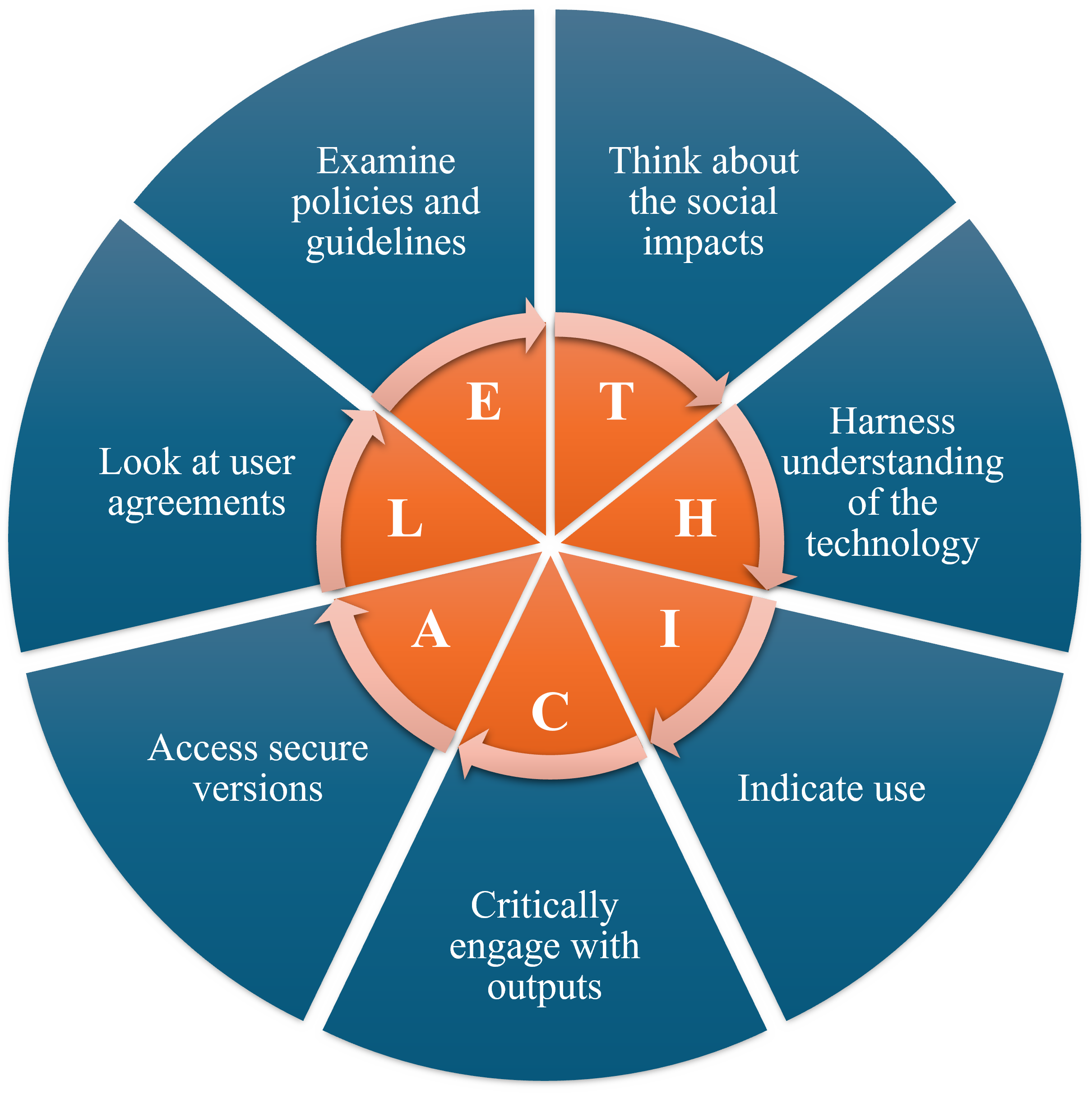The ETHICAL framework for responsible generative AI use

Dr Lynette Pretorius
Dr Lynette Pretorius is an award-winning educator and researcher specialising in doctoral education, AI literacy, research literacy, academic identity, and student wellbeing.
The advent of generative artificial intelligence (GenAI) has opened up transformative possibilities in academic research. Tools like ChatGPT, Gemini, and Claude hold the potential to help with idea and content development, structure and research design, literature review and synthesis, data management and analysis, as well as proofreading and editing. However, as enticing as these advancements are, they bring ethical challenges that require careful navigation. To bridge this gap between potential and responsibility, my colleagues and I developed the ETHICAL framework for GenAI use, which has just been published open access!
The ETHICAL framework offers a structured approach, with each letter in the acronym representing a principle that users should embed into their practices. The framework has been summarised in this handy picture.

Examine policies and guidelines
Researchers must consult international, national, and institutional GenAI policies. This involves not only aligning with global GenAI ethics recommendations but also understanding the specifics of local guidelines. Adhering to these ensures compliance and fosters trust. As an example, my institution has an entire policy suite relating to responsible GenAI use in both teaching and research.
Think about the social impacts
GenAI can reinforce biases and perpetuate inequalities. Researchers should critically evaluate the societal consequences of using GenAI, considering both environmental sustainability and digital equity.
Harness understanding of the technology
A robust understanding of how GenAI tools operate (beyond their surface-level functionalities) is essential. Researchers must grasp the limitations and ethical implications of the technologies they use and should promote AI literacy within their academic communities. I have written other blog posts about what AI literacy is and how you can build your AI literacy. This handy quick video explains the components of AI literacy.
Indicate use transparently
Transparency is key to maintaining academic integrity. Researchers should explicitly disclose where and how GenAI tools were used, documenting their role in the research process. This fosters accountability and mitigates risks related to copyright and authorship disputes. This video provides a simple guide to formatting GenAI acknowledgements.
Critically engage with outputs
GenAI outputs are not infallible and require rigorous validation. Researchers bear the ultimate responsibility for ensuring that GenAI-generated content aligns with disciplinary standards and is free from inaccuracies or ethical breaches.
Access secure versions
Security and privacy are paramount when using GenAI. Free versions of tools may not offer adequate protections for sensitive data, underscoring the need for secure, institutional subscriptions or private deployments of GenAI models.
Look at user agreements
Many GenAI tools have complex user agreements, which can have significant implications for data ownership and privacy. Researchers should carefully review these terms to ensure ethical compliance and to safeguard their intellectual property.
The ETHICAL framework encourages universities to incorporate AI literacy into their curricula, ensuring that both students and faculty are prepared to navigate the ethical complexities of GenAI-enhanced research. The ETHICAL framework is also not just a set of guidelines, it’s a call to action. For educators, researchers, and institutions alike, the message is clear: the future of GenAI in higher education depends on our collective ability to navigate its challenges responsibly. The ETHICAL framework provides a compass for doing just that, fostering a research culture that is as ethical as it is forward-thinking.
Questions to ponder
How can universities integrate AI literacy into their existing curricula effectively?
What steps can researchers take to ensure equitable access to GenAI tools across diverse socio-economic contexts?
How should publishers and peer-review committees adapt to the growing use of GenAI in manuscript preparation?

